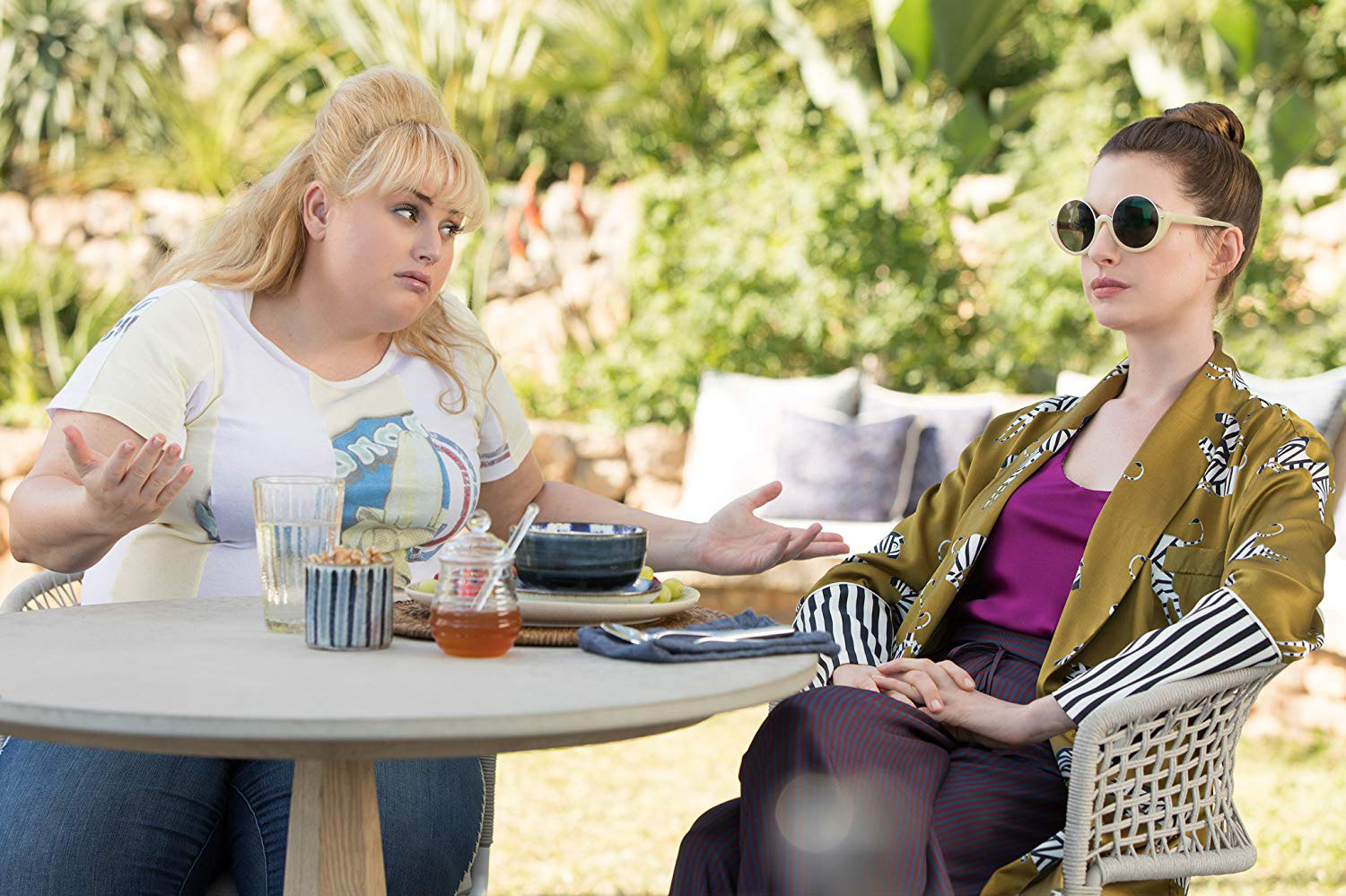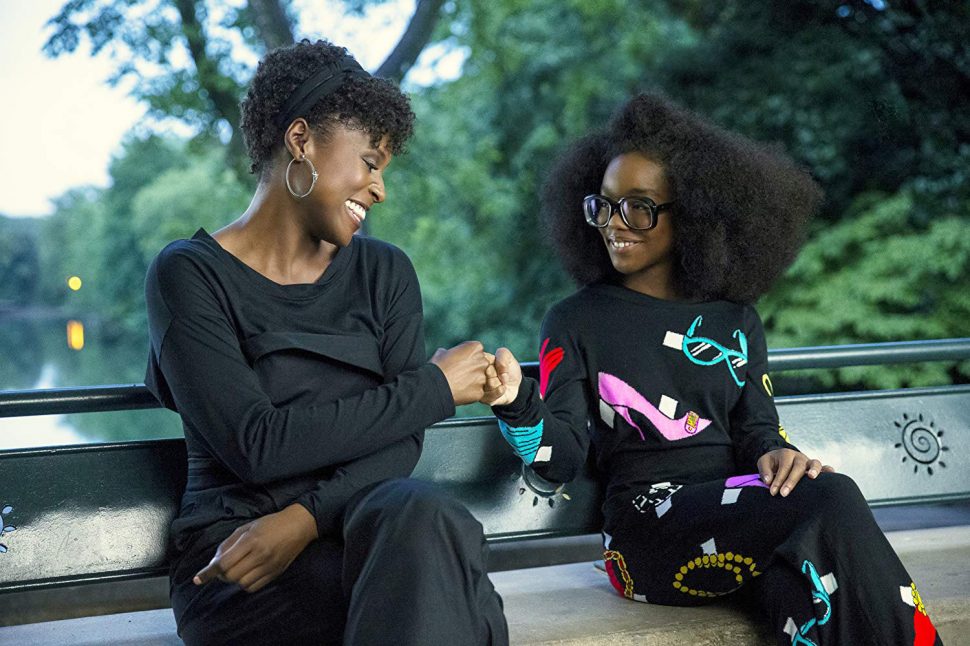
Neither film quite lives up to its predecessor but don’t tell the women at the centre. In fact, should we tell them it probably won’t matter because even as the gender flipping of both films leads to little narrative surprises or depth, both films benefit from the women keeping things afloat at the centre.

In The Hustle, two con-women are thrust together in a community too small for two hustlers. There’s the ostentatious Josephine (Hathaway doing an inexplicable accent) and the boisterous Penny (Wilson in her typical everywoman schtick, deprecating sensibility and all). After the more trained Josephine tires of playing nice the two settle on a wager: Con a mark and the loser has to leave town. Hijinks ensue, naturally.
In Little, bullied nerd Jordan, played by Regina Hall, turns into bully boss-lady. An inexplicable spell sees her returned to her 13-year-old self. She must navigate this new/old self with the help of her beleaguered assistant and a potential business failure while in her new pint-sized form. Again, hijinks ensue, naturally.
Of the two films, Little is the one that is billed as a fantasy comedy. But fantasy seems to be an apt description for both films. Both invite audiences to engage with worlds that are more fantastical and improbable than realistic. Disassociate yourself from reality and enjoy the silliness. In this way, our attention is less about plot. Neither is interested in subverting its source, beyond the change of the gender of the lead character. Instead, they signal the expected resolutions early on, encouraging us to focus on the craziness that ensues rather than worry about their resolutions.
Little benefits from its smaller stakes and even the criticisms of its safeness seem to work in its favour. The film is safe but it’s also a film starring and executive produced by a fourteen-year-old. Blackish star Marsai Martin becomes the youngest executive producer in Hollywood and the film is cognisant of its child-friendly roots, so even the forays into adult romantic relationships are kept PG enough. There’s a sweetness to it that charms. The film moves between Martin as young Jordan and her assistant April, played by TV-star Issa Rae, and sometimes seems uncertain who it wants to present as our hero but its sweetness is effectively offset by the gameness of its cast.
Hall, as the adult Jordan, gets the least screen time of the trio but she’s the film’s best asset. Rae and Martin are no slouches, though. Little earns its laurels from its earnestness. Even the seemingly doomed romantic relationships are countered with a sweetness that feels incredibly at odds with typical forays into this type of comedy. The stakes are low but when matched with the film’s eclectic costume design and good humour, Little benefits from its sweetness.
The Hustle never approaches sweetness or that level of sincerity and it’s much more guilty of a jarring tonal inconsistency. For example, from its credits (an amusing animation sequence) The film recognises the body differences between its stars and suggests it will use this to good effect. The reality is less effective. Wilson’s size is presented as the butt of many jokes, some of them quite terrible, so a late turn movement to earnestness feels unearned and out of place. It also does not help that she’s working with a role too close to her typical filmic personalities.
Hathaway benefits from an incredibly bizarre outlandish characterisation of a woman who seems incredibly unrealistic. The unreality is the point though. The humour is in the inexplicable. It’s an exercise in performed humour and it doesn’t make sense, which is the point. Hathaway is game in a way the film never consistently catches up on. By the middle of the film, I was charmed. Reluctantly and perhaps foolishly. The Hustle is about cons and about cons that we can see through. It creates immediate confusion as we find that the situations become increasingly more improbable as we go on. I knew The Hustle was a con while watching it. It’s incredibly slight and foolish. But its ends up committing to its ridiculousness in a way that I could not help but respect. In the end it wore me down.
The Hustle and Little are now playing at local theatres.






